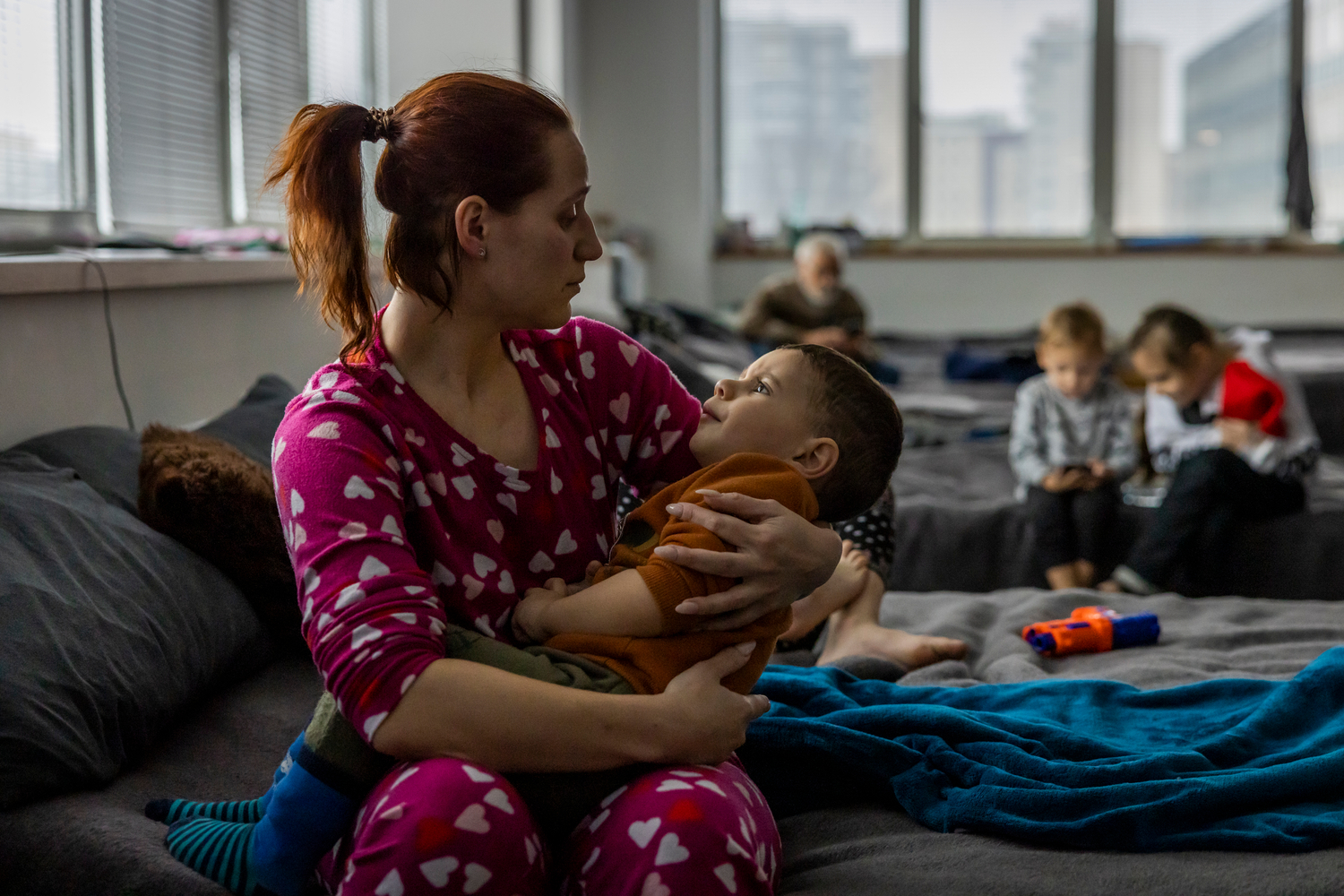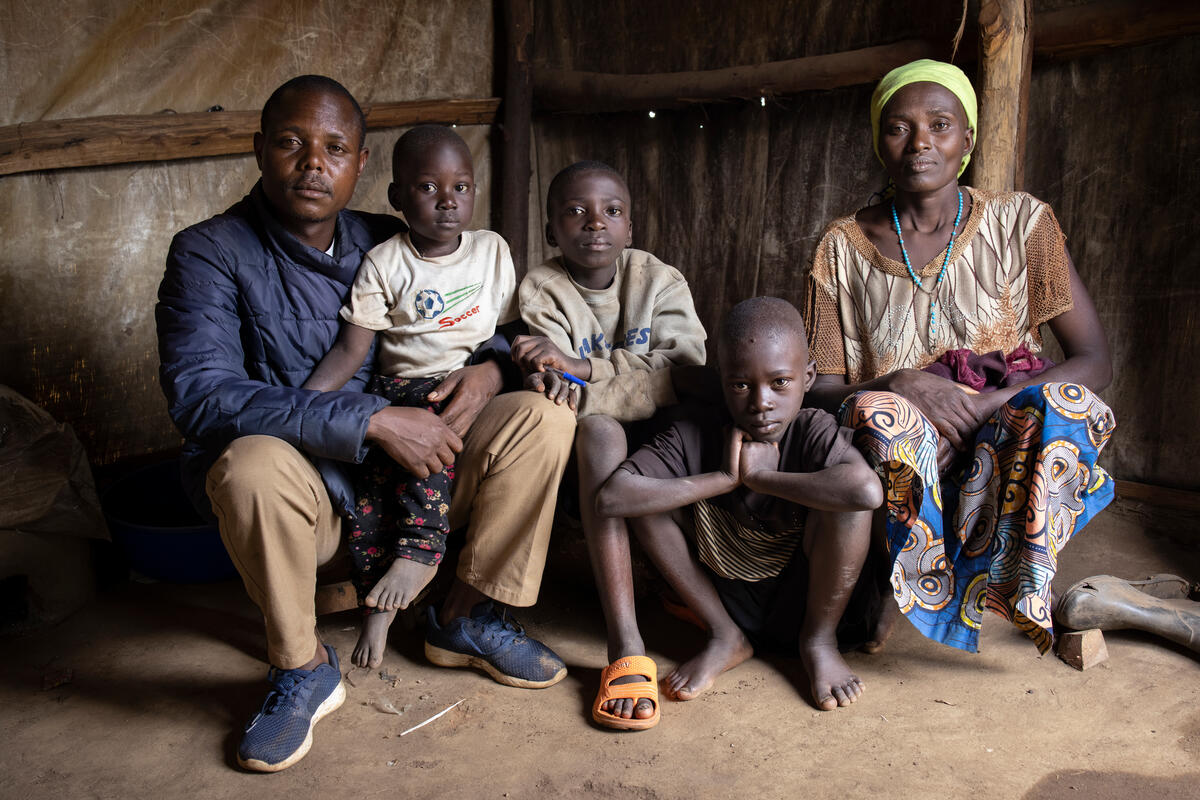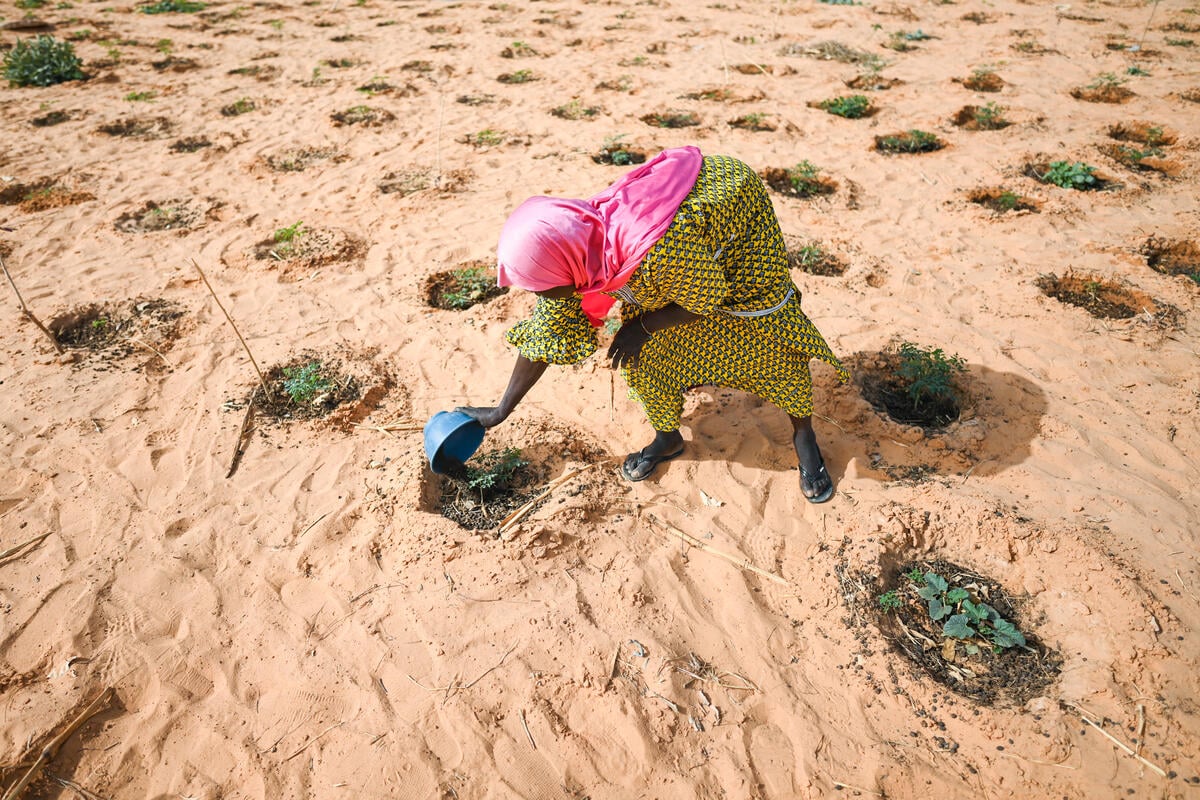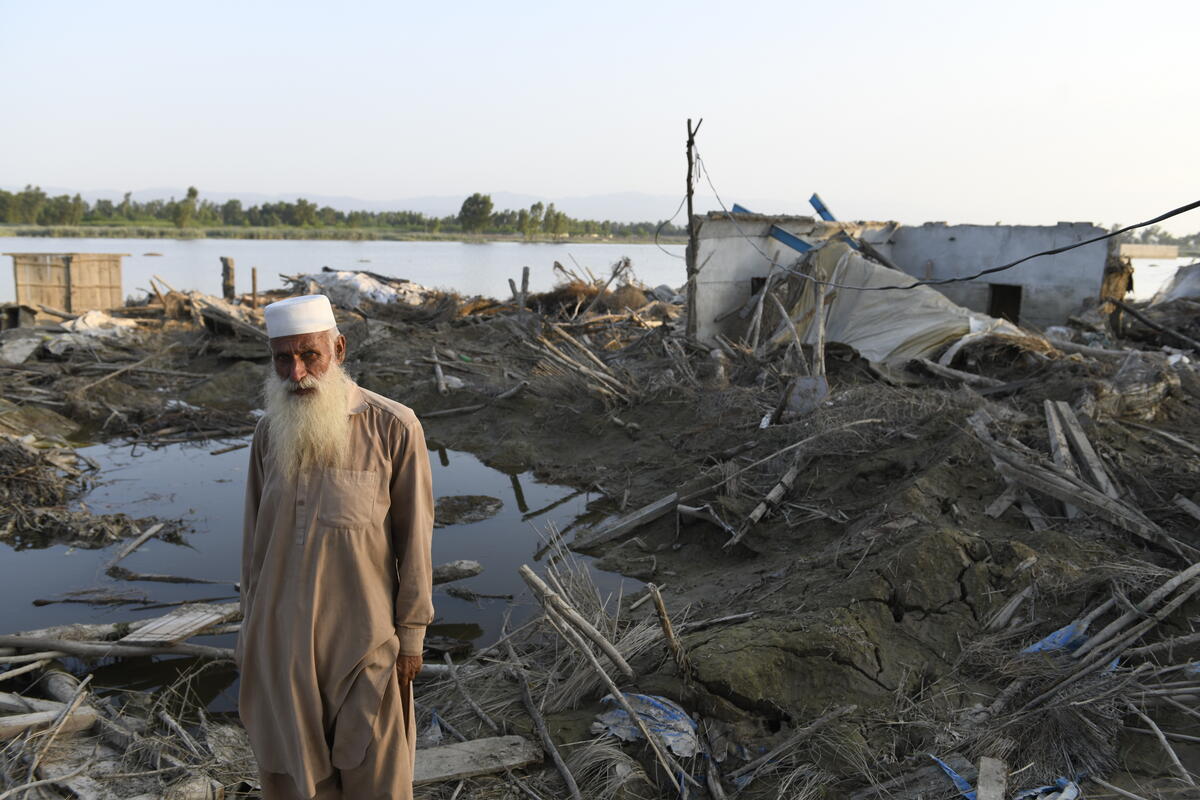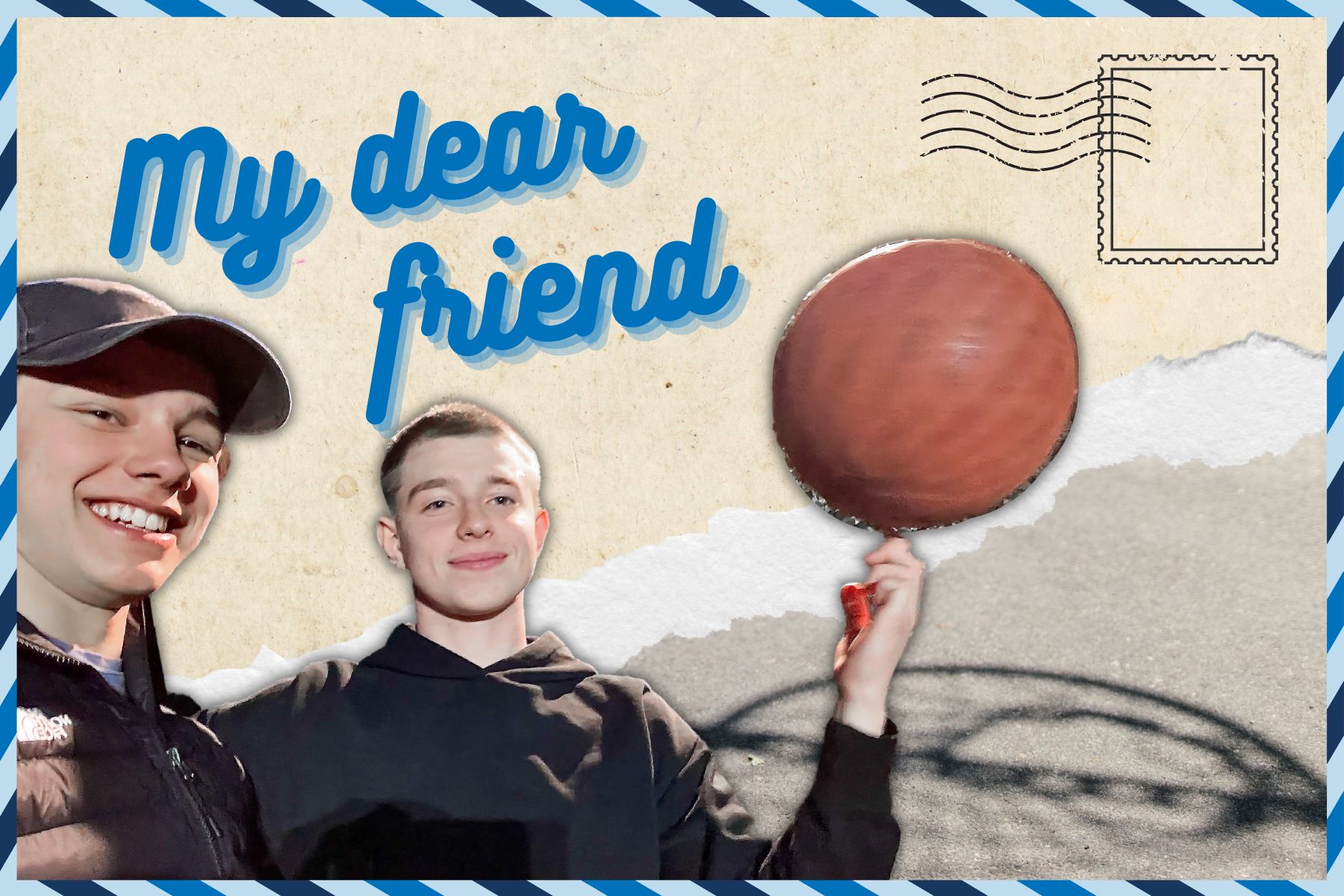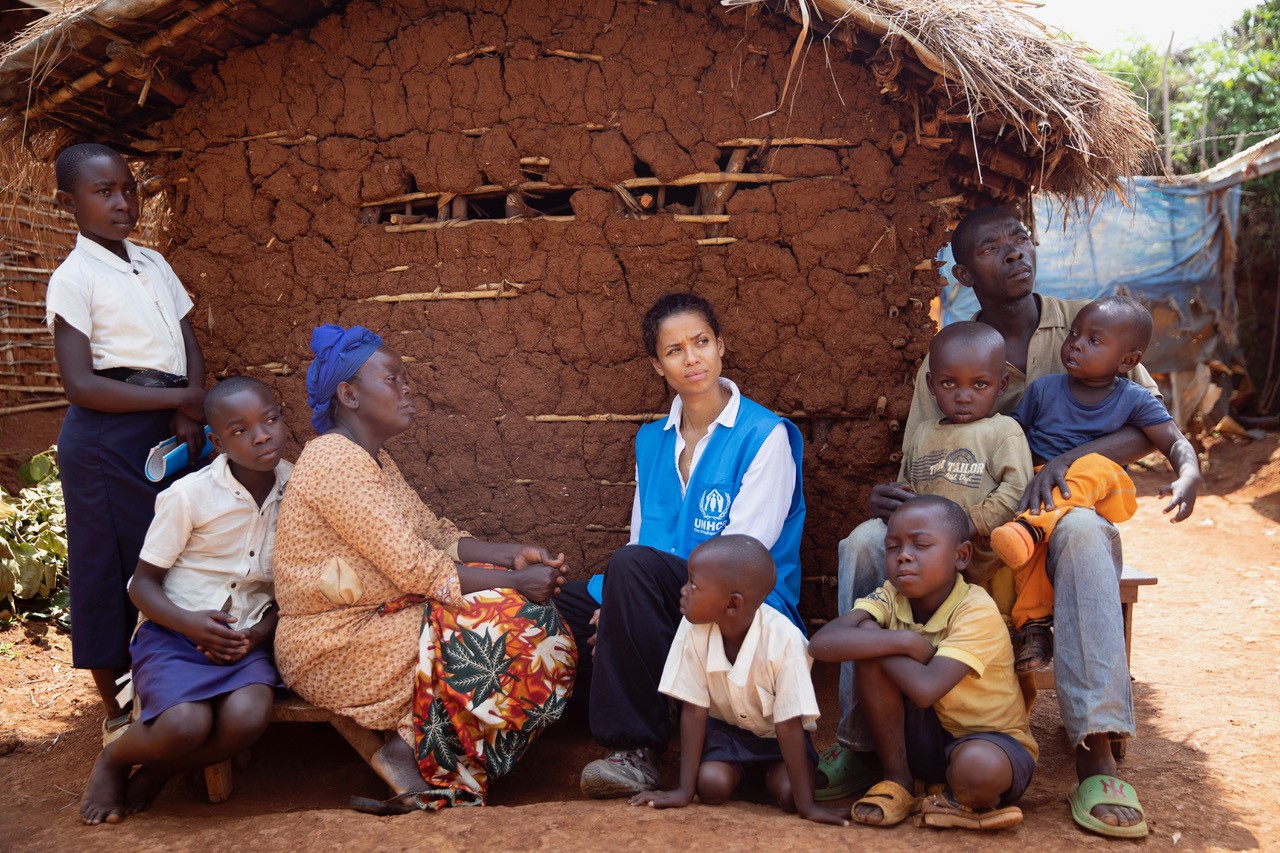Ukrainian family confronts new reality of life as refugees
Ukrainian family confronts new reality of life as refugees

In a large sports hall in the Polish border town of Medyka, hundreds of camp beds cover the playing courts to provide temporary accommodation for refugees from neighbouring Ukraine. Amid the bustle and noise of families with young children, Valentina cradles her two-month-old nephew Andrii in her lap and tries to make sense of the past few days.
“I never thought I would have to leave my home. That I would have to flee just to save my life," Valentina says. The 42-year-old kindergarten teacher arrived in Poland on 5 March along with her eight-year-old daughter, sister, and baby nephew. They reached safety following an arduous week-long journey covering hundreds of kilometres by bus, train and on foot from the northeastern Ukrainian city of Kharkiv.
After walking the last stretch across the border with Andrii wrapped in blankets against the biting cold, everything went smoothly. "Everyone here was so friendly," Valentina says. "They took us in and first gave us something warm to eat."
"I never thought I would have to leave my home."
A bus brought them to the sports hall, where there is little in the way of privacy but a multitude of volunteers from the local fire brigade, Red Cross and other organizations on hand to distribute food and donations, and play games to keep the children occupied.
“Now we have made it, but I can't be happy, even though I hold our future in my hands, and he smiles at me all day," Valentina says, looking down at Andrii blinking in the bright fluorescent lights of the hall.
Since the escalation of the conflict in Ukraine beginning on 24 February, more than 2.2 million people have fled the country in what has become Europe’s fastest-growing refugee crisis since World War II. So far, more than 1.4 million refugees – mostly women, children and older people – have crossed the border into neighbouring Poland.
UNHCR, the UN Refugee Agency, has teams at the borders in Poland and other neighbouring countries to support national authorities in providing assistance and protection to people fleeing. As well as distributing relief items, the agency is providing information and counselling services, and helping to identify people with specific needs including children who have crossed the border alone and people with disabilities.
- See also: Unaccompanied and separated children fleeing escalating conflict in Ukraine must be protected
- See also: UNHCR’s Grandi praises Europe’s welcome for Refugees fleeing Ukraine
UNHCR Poland’s Katarzyna Oyrzanowska says the agency has been present at the border from the first day of the crisis, and a particular focus for her and her colleagues has been to monitor how children are being accommodated and cared for.
“By far the largest part of the refugees are women and children. You hardly ever see a man,” Oyrzanowska says. “We try to find solutions for them. They have been torn from their familiar surroundings, miss their fathers and do not understand the situation. All this is difficult for adults to cope with. What must it be like for children?”
"We were suddenly... refugees."
Andrii’s mother Irinia describes the moment during the first days of the conflict when Kharkiv shook with the sound of explosions, and they decided to escape.
"We gathered some things and fled. We were suddenly... refugees," Irinia says, still coming to terms with the reality of their situation. "Our men stayed behind to defend our country. We took our children to safety."
Her sister Valentina hugs her nephew tightly and responds: "He is a refugee now, but he won't stay one. We'll look after him now. And when he is big and strong, he will rebuild our country." She kisses his forehead and says "maybutnye". "Future".

